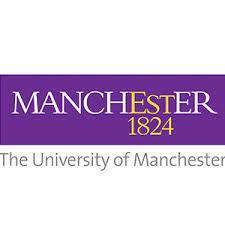
A mentoring scheme for graduate teaching assistants
How to shape a mentoring scheme to help graduate teaching assistants develop their instructional practice and gain professional qualifications
Graduate teaching assistants (GTAs) often fall into the cracks of being simultaneously research students and members of faculty involved with teaching. They play an important role in the quality of undergraduate education and can influence student retention. Therefore, providing GTAs with continuing professional development (CPD) for their teaching is vital.
One approach to improving GTA teaching development and recognition is through professional accreditations – for example, in the UK, the Associate Fellowship of the Higher Education Academy (AFHEA) through Advance HE. This requires GTAs to reflect on their teaching and to think about pedagogies that enhance their practice. We have found mentoring helpful in supporting GTAs to achieve this. Here we describe how we have made this work.
Mentor route structure
In order to gain the AFHEA, GTAs need teaching experience and to have completed relevant training courses. These courses vary according to the GTA’s discipline or role but cover topics including:
- Learning outcomes and lesson plans
- Roles and expectations
- Marking and feedback
The training courses provided to GTAs by the university are mapped against Advance HE’s UK Professional Standards Framework (UKPSF) with an example from our Faculty of Science and Engineering here. This allows GTAs to link what they learn during their training directly to the UKPSF criteria they need to meet for their AFHEA application.
Aligning the mentoring scheme to the main semesters (September to January, January to May) works best for GTAs as they tend to think about teaching during the time they are actively engaged in teaching. We run two rounds every year, each with an intake of about 80 GTAs.
Each mentoring round starts with a general introduction covering the benefits of gaining AFHEA, expectations of the AFHEA application and information about the mentoring sessions.
The cohort is split into mentor groups. Basing this upon attendance at the introduction session is effective in selecting GTAs who are committed to the application. Those who don’t attend this session are not enrolled but are invited to the next introduction session.
- Peer mentoring to support staff well-being: lessons from a pilot
- Why it is time to start co-creating professional development with employees
- Resource collection: Teaching 101 for university educators
The mentor groups vary between eight to 12 members, depending on the exact number of applicants and mentors. This number works well as attendance is rarely 100 per cent. Some GTAs cannot make every session, and others have to postpone applications as PhD workloads increase or other commitments take precedence.
To help guide mentors and applicants, the mentor sessions are themed, one per month:
- Understanding the UKPSF and case study ideas;
- Linking the UKPSF and pedagogy to case studies;
- Checking of mapping documents and presentation drafts.
We have an online virtual learning environment (VLE) with FAQs, example submissions and supporting information on pedagogical theories and reflection. This is the system through which the GTAs submit their application.
Engaging mentors
We have a core team of four academic staff mentors, other mentors are recruited from past applicants.
Everyone who successfully completes their application for AFHEA is invited to become a mentor, straight after they are awarded. This is optional – there is no requirement to do this. This usually attracts about four new mentors per round.
Although applicants can apply at any time during their PhD (as long as they meet the expectations), most apply during their second year. This means they can be a mentor for two to three cohorts.
Several have remained as mentors for the programme after finishing their PhD. Many secure a postdoctoral research assistant (PDRA) role within the university and want to continue offering their support, in part due to the training provided to them.
Training mentors
When a new mentor starts, they are paired with an experienced mentor for one cohort. They see how support is provided from the mentor side, while helping the experienced mentor with their group.
We host a monthly mentor meeting, bringing all mentors together to discuss any issues or questions.
We train mentors as assessors for the AFHEA to give them a greater understanding of what is required for the application. This training takes place in two sessions:
- A general session on marking practice with a discussion about assessment criteria. The biscuit game created by Kay Sambell, Sally Brown and Phil Race is used in this session – although we tend to use chocolates due to initial availability. This exercise gets people to think about different criteria and how these criteria can be interpreted in different ways. It aims to help people understand how to achieve consensus.
- A session on marking an example AFHEA submission – this is marked before the session by all attendees, then discussed during the session. Feedback to applicants is covered, focusing on the criteria and providing positive comments and required improvements.
After the assessments of the actual AFHEA applications are undertaken (two assessors per application), all assessors then meet to discuss the submissions and to moderate the results to make sure there is consistency. We note here that no mentor is allocated to mark their own mentee’s submission.
Finally, we support mentors to apply to gain a Fellowship of the Higher Education Academy (FHEA), the next stage on from the AFHEA. To do this, we provide opportunities for them to complete elements of the UKPSF where they have no previous experience, such as designing and planning learning activities, which can be used with the GTA training courses.
Problems encountered
Our programme started with only three members of staff, who, during the first round, dealt with about 50 applicants, before any successful applicants had become mentors themselves. The sudden popularity of the scheme took us by surprise.
This taught us to impose a limit on the registration numbers, depending on the availability of mentors.
What started as an experiment has turned into a successful mentoring programme that is greatly valued by GTAs. It is often hard to measure success but GTAs have come back to the team outlining the jobs they have been able to secure thanks to their AFHEA status, as well as more general reflections on their teaching and the difference this has made to them personally.
Teaching is too often overlooked in academia. Getting time to reflect on experiences and see what has worked well (or not) and how this can be enhanced in the future can make us, as individuals, feel proud of our achievements. For GTAs, who are often under pressure from PhD research, gaining AFHEA is a great achievement that builds their self-confidence.
Thomas Rodgers is a reader in chemical engineering education and Claudia E. Henninger is a reader in fashion marketing management. They are co-leaders of mentoring excellence at the University of Manchester.
If you found this interesting and want advice and insight from academics and university staff delivered direct to your inbox each week, sign up for the Campus newsletter.




